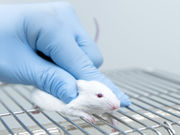Sleeve gastrectomy causes improvement in muscle and hepatic insulin sensitivity
WEDNESDAY, Feb. 28, 2018 (HealthDay News) — Sleeve gastrectomy (SG) is associated with an improvement in glycemia, via increased insulin sensitivity, according to a study published online Feb. 23 in Diabetes.
Samir Abu Gazala, M.D., from the Hebrew University-Hadassah Medical School in Jerusalem, Israel, and colleagues performed SG on obese and diabetic leptin receptor-deficient mice (db/db) to examine the molecular mechanisms underlying improved glycemic control following bariatric surgery.
The researchers found that, compared with sham-operated controls, mice weighed 5 percent less and displayed improved glycemia one week post-surgery; islets from SG mice exhibited reduced expression of diabetes markers. SG mice weighed more at one month post-surgery than preoperatively, but they remained near-euglycemic and exhibited reduced hepatic lipid droplets. Surgery, and not weight loss, was responsible for reduced glycemia following SG as indicated in pair-feeding of SG and sham db/db mice. Indistinguishable insulin secretion profiles were identified in islets of sham and SG mice, but SG caused an improvement in muscle and hepatic insulin sensitivity, which was accompanied by hepatic regulation of HNF4a and PPARα targets.
“We conclude that long-term weight loss following SG requires leptin signaling,” the authors write. “Nevertheless, SG elicits a remarkable improvement in glycemia via insulin sensitization, independent of reduced feeding and weight loss.”
Copyright © 2018 HealthDay. All rights reserved.








